Giving Opportunities
The Southern Historical Collection has received a Challenge Grant from The National Endowment of the Humanities (NEH) to make the work of the African American Collections and Outreach Archivist permanent. The NEH has pledged $500,000 if the UNC Library can match it with $1.5 million raised over four years. The endowment created will provide permanent funding; ensuring that the Southern Historical Collection will always proactively gather and protect the dynamic stories, artifacts, and archives of African American history and culture in the American South.

Ajay K. Ojha, PhD, of Washington, DC and Smithfield, NC passed away in Escuintla, Guatemala on November 12, 2014 while on a volunteer service mission helping build a secondary school. He was an active member of the Alumni Committee on Racial and Ethnic Diversity and its Asian Subcommittee. The Subcommittee created the fund to name an office in the FedEx Global Education Center in his name.

The American Indian Center (AIC) is a university-wide service Center designed to advance the university’s mission of research, education and service with three primary goals:
- Leadership in American Indian scholarship and research
- Engagement with and service to Native Populations and
- Enrichment of campus diversity and dialogue.
Programs include the Faith Danielle Hedgepeth Memorial Scholarship, the Ambassadors program, the AIC internship program, the Native Nations Forum, the Welcome Extravaganza, the Commencement Ceremony, CIC Pow Wow and CIC end of year banquet.

The Carolina Asia Center is the University of North Carolina’s flagship organization for Asia-related activities. In 2014, it became the first Title VI-funded pan-Asia National Resource Center in the southeast United States. Its mission is to positively transform understanding of and relationship with Asia and to equip students and others with the knowledge of Asia to assume leadership roles.

The Carolina Covenant is a promise to allow eligible low-income students who earn admission to have the opportunity to graduate from Carolina debt-free. Launched in 2004, the Covenant has provided more than 5,300 students with grants, scholarships and work-study jobs so they can earn a degree from Carolina without taking out student loans. As the program continues into its second decade, the Covenant serves more than 1-in-10 UNC undergraduates as the need for financial aid for students continues to grow.
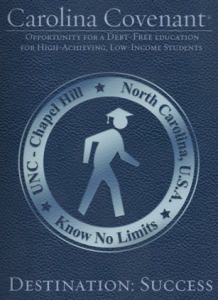
The Carolina Latina/o Collaborative is a joint effort of University officials, faculty, staff, students, and community members invested in exploring how Carolina may become more inclusive of Latina/o communities, cultures, experiences and affairs. Practically speaking, this means that CLC will facilitate collaborative efforts amongst campus and community initiatives and provide a space for programming without duplicating or altering existing services. Some of CLC’s signature programs include the Latina/o Mentoring Program (LMP), Open House to welcome incoming students, Hispanic Heritage Month, Latina/o Alumni Reunion and the Exitos graduation ceremony, to name just a few. For more information, please visit http://clc.unc.edu/about-us/
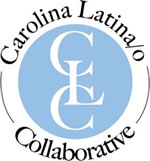
Curtis Sutton Innovation Laboratory is in honor of Dr. Curtis Sutton, a Carolina alumnus and scientist. The facility is a multi-genre, multi-use creative technology space that embodies themes from Sutton’s life as a Tar Heel and North Carolina native. It is a space where culture and technology collide by creating opportunities for campus administrators, students and community members to engage in thought innovation and leadership; and create a tech-savvy boardroom that brings leaders from diverse backgrounds to one table to discuss ideas, solve problems and spark conversation.

The American Indian Studies Fund was established in 2011 to support the education and research objectives of faculty members working in the field of American Indian Studies.
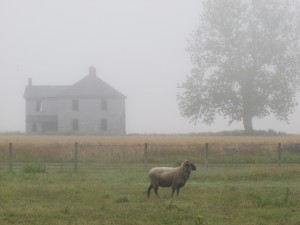
The Institute of African American Research supports and facilitates excellence in research concerning African Americans and the African Diaspora. The IAAR expands understanding and cultivates engagement with critical questions, approaches and innovative and timely studies as they pertain to research about people of African descent.
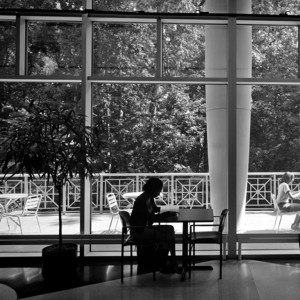
The National Pan-Hellenic Council, Inc. (NPHC) Garden Project will celebrate and honor the contributions and history of the NPHC member fraternities and sororities whose organizations have impacted UNC’s campus since the first organization arrived in 1973 with their commitment to civic engagement, leadership, academic achievement and providing a sense of belonging for students.
Located on South Campus between the SASB North and South, the NPHC Garden will create a positive environment for NPHC organizations to unite in efforts to promote their fraternities and sororities while educating students about the history of these diverse organizations.
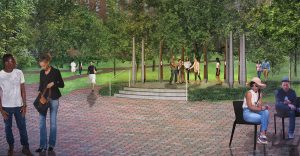
Project uplift, approaching its 50th anniversary, enables high-achieving, rising seniors to experience academic rigor and social climate of life on the Carolina campus. Students spend two days visiting classes, meeting with faculty and staff, interacting with Carolina students and participating in cultural and social activities. This early recruitment program provides prospective students with insight into the UNC-Chapel Hill undergraduate experience.
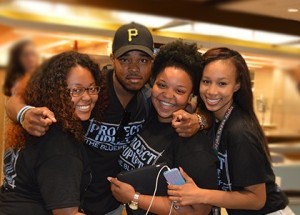
Named for beloved faculty member Dr. Sonja Haynes Stone, the Center is one of the preeminent sites in the nation for the critical examination of African and African-American diaspora cultures, providing intellectual and cultural programming that is both timely and informative.

 The Sonja Haynes Stone Center for Black Culture and History is undertaking an auditorium seat naming campaign to raise money towards completing the unfinished parts of the Center, and the Alumni Committee on Racial and Ethnic Diversity’s African American Subcommittee is helping to spread the word.
The Sonja Haynes Stone Center for Black Culture and History is undertaking an auditorium seat naming campaign to raise money towards completing the unfinished parts of the Center, and the Alumni Committee on Racial and Ethnic Diversity’s African American Subcommittee is helping to spread the word.
The seats are $2,500, and payments can be spread over as many as four years. Here’s how you can place your name on a seat at the Center.

Tar Heel Preview Day is an opportunity for sixth through eighth-grade males from diverse ethnic and cultural backgrounds to have a collegiate experience by interacting with college students, including Carolina Millennial Scholars. Participants meet academic faculty and staff and receive information about the college preparation process. The vision for Tar Heel Preview Day is to host middle school males from across the entire state as a way to connect and inspire young males to start thinking about and planning for college.
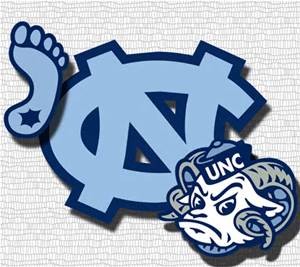
A critical element for any twenty-first century educational institution is a diverse and inclusive community. The vision of the University Office for Diversity and Inclusion is to build and sustain an inclusive campus community and to foster a welcoming climate that values and respects all members of the University community. The mission of the Office affirms the University’s commitment to diversity as a critical element of academic excellence. Programs include Project Uplift and Recruitment, Carolina Latina/o Collaborative, Carolina Millennial Scholars Program and DMA Cultural Competence Leadership Institute.


